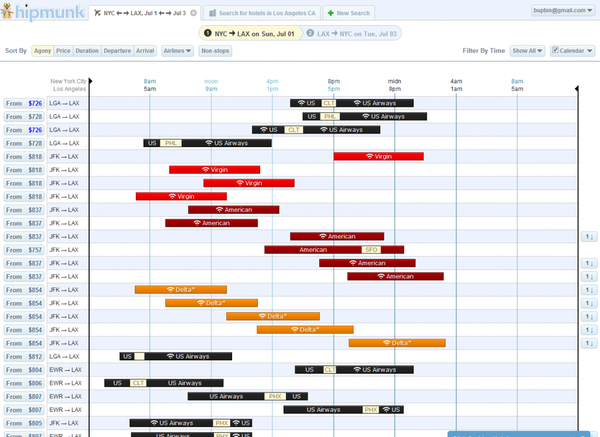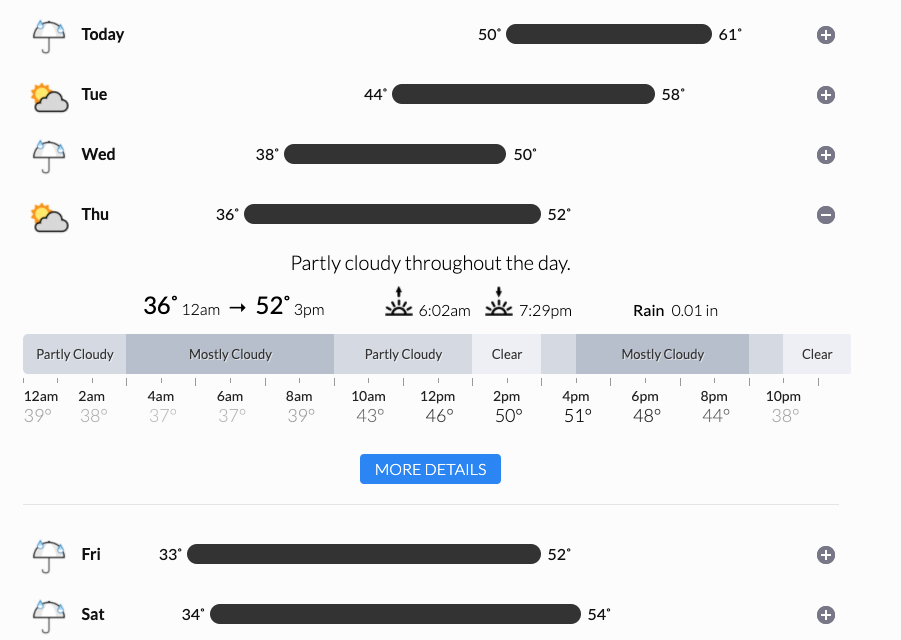The tragedy of orphan apps
Apps have vastly improved the convenience of our lives. Now corporate machinations are making them disappear. Why are we going backwards?
I first noticed this when Hipmunk stopped working. Hipmunk was a truly innovative flight search engine with an interface vastly better for comparing flights than Expedia, Travelocity, or anything else. Not only that, it was light on ads, showed every flight (including airlines like Southwest that don’t appear in other search engines), and made it easy to exclude low-priced but execrable “basic economy” tickets.

Corporate travel and expense platform SAP Concur bought Hipmunk in 2016. But that didn’t change anything, you could still use it for free.
SAP Concur shut down Hipmunk in January 2020. According to the travel industry site Skift:
Hipmunk’s co-founders, Adam Goldstein and Steve Huffman, made an offer to buy back the company. . . . A source who attended an employee meeting at Concur Hipmunk’s offices Tuesday in San Francisco to announce the shutdown confirmed that the issue was raised at the meeting, and that company officials said they were not entertaining any offers for Hipmunk’s assets.
So, no more Hipmunk. And for no good reason.
Bye-bye Dark Sky
Dark Sky is a unique weather app. Its focus is hyperlocal. And its interface is ideal for estimating, say, what the chances of rain on Thursday afternoon are, and will there be high winds as well. It estimated snowfall totals when other apps wouldn’t. When I was commuting to work by bicycle, it was essential. And it had no ads.

Apple bought Dark Sky in March. Its Android app will stop working in July. Dark Sky says, “There will be no changes to Dark Sky for iOS at this time. It will continue to be available for purchase in the App Store.” But I don’t trust the “at this time.” Apple will do with it whatever is best for Apple, which, in the future, may not include a standalone app.
The Scrabble App will die soon
A month ago I wrote that Hasbro was ending Scrabble’s classic EA app and replacing it with the awful and chalucious Scrabble GO. Since then, that post has been deluged with thousands of views and 73 comments. It now accounts for one-quarter of my blog’s total daily traffic. The perspective of visitors is unanimous. Scrabble GO sucks and we are desolate that the original app is going away.
This is a money grab by Hasbro. It’s likely to fail. But in the meantime, we lose what we had. It’s senseless.
Why not keep ’em?
In each of these cases, the original app creators could easily have maintained the app, just as it was, with upgrades only to maintain compatibility with new iOS and Android versions.
I would estimate that, at a price of $20 per year, these apps would retain at least a million users each. Factoring in 30% for Apple’s and Google’s cut, this would generate $14 million a year. That’s more than enough to pay few developers to keep an app up to date. There’s no need for ads. These apps are good enough to generate a subscription revenue stream.
So why hasn’t that happened? Because these corporate moves mean that it’s just not worth doing. Even though there are developer teams happy to continue to work on the orphan apps.
I’m wary of legislation on this topic. But with the way thing stand now, powerful interfaces created for unique and elegant products will be thrown on the waste heap for no good reason. When a popular app is shut down, should the corporate owner be required to put the source code in the public domain, or lose the copyright on the code?
Capitalism is supposed to allocate resources efficiently. So why can’t it fix this?
What does “chalucious” mean? This blog post is the fifth result when I Google the term.
It refers to something decorated in garish and ugly colors.
Because it is yiddish, there is no standard English spelling (the “ch” refers to the guttural sound as in chanukah or the Scottish Loch). Say “huh-loosh-iss” but the clear your throat a little when saying opening sound.
In my childhood, it was a term my parents used to refer to an overdecorated house or product — something really ugly, but in a showy way, rather than a drab way.
A whole book could be written about apps that got killed unnecessarily. Google Reader is to me the most heartbreaking example. And what LinkedIn has done to SlideShare is unforgivable.
The app “iTrans” was so easy to use for navigating planned changes in the NYC subway system (where maintenance changes happen with extreme regularity). The MTA stopped feeding iTrans the information it needed several years ago. The MTA has never produced an app even 10% as good as iTrans.